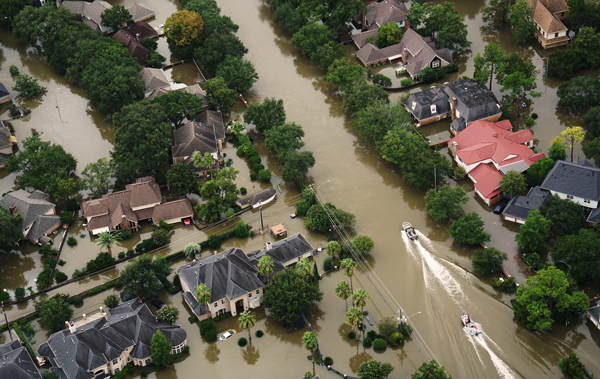"Our clients still have memories of Hurricane Sandy," says Mark Snyder, president of Medford, N.Y.-based Mark J. Snyder Financial Services, "and many also have homes in Florida and the Carolinas. We’ve been regularly advising them to review their policies, be sure they understand their coverage."
In general, flood damage and wind damage are considered separate events and rarely covered under one policy. "Most of the people in hurricane zones won’t qualify for flood insurance," says Michael Terry at Merit Financial Partners, a fee-only financial planning firm in Maspeth, N.Y., whose clients were not affected by the recent storms. "I’m sure there are lots of FEMA offices ready to help them put in FEMA claims."
The Federal Emergency Management Agency underwrites flood insurance coverage. It may contract with independent carriers to service claims, but complaints about flood coverage should be directed to FEMA.
After Katrina and Sandy, there were many FEMA flood complaints. Claims were "terribly mishandled," says J. Robert Hunter, director of insurance at the Washington, D.C.-based Consumer Federation of America, as well as the former insurance commissioner for the state of Texas and former administrator of the National Flood Insurance Program. "FEMA has come up with some reforms" since then.
In any case, it's important for clients who have suffered damage from either flood or wind, or both, to be prompt about filing claims. "Keep on top of your insurer," the consumer federation advises in a recent press release.
Keep Good Documents
Furthermore, clients should take careful notes, write down claim numbers, keep adjusters' names and contact information, and hold onto receipts for any and all expenditures for loss-of-use (hotel accommodations, for example) and immediate repairs. Not doing so is the No. 1 mistake many clients make, says Hunter. "Not documenting their interactions with the insurer and adjuster [and] not fighting to protect themselves," he clarifies.
Indeed, Terry adds that careful documentation should begin before catastrophe strikes. "Of course," he says, "carefully documented lists of property would be helpful, but that is something that should be done before the disaster."
Remember, too, that not all insurance companies are unfair. Keep an open mind, says Hunter. But be careful. When insurance adjusters come to survey the damage, clients should inquire whether they are employees of the insurance carrier or independent contractors. If they are the latter, they may or may not be authorized to make claim decisions. If that's the case, it's prudent to get the name of the in-company adjuster who has that authority. The widespread destruction and displacement caused by recent hurricanes have caused many to re-examine their property and casualty insurance policies. With tensions running high, advisors may feel caught in the middle between their clients and the insurance adjusters. How can advisors best address clients' concerns in the aftermath of such broad-based tragedies?
The widespread destruction and displacement caused by recent hurricanes have caused many to re-examine their property and casualty insurance policies. With tensions running high, advisors may feel caught in the middle between their clients and the insurance adjusters. How can advisors best address clients' concerns in the aftermath of such broad-based tragedies?
Advising Hurricane Survivors
September 18, 2017
« Previous Article
| Next Article »
Login in order to post a comment








